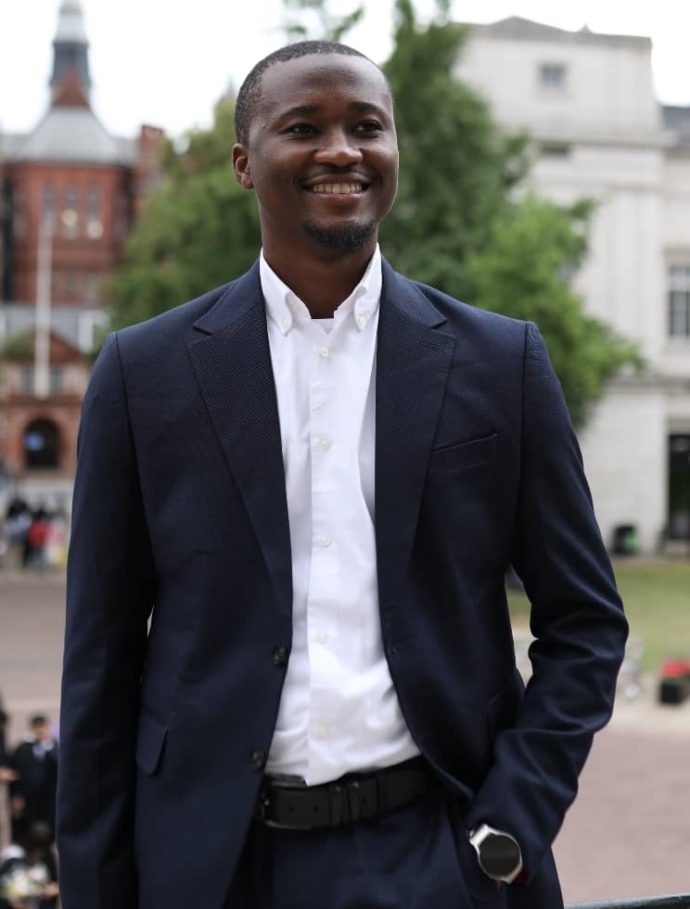An exclusive interview with Muideen Abubakar on his unconventional career pivot, tech transition initiatives, and views on Nigeria’s digital future. We discuss his journey from traditional finance in Nigeria to financial technology in London.
Q: Can you please tell us about yourself and a bit of your background?
I’m Muideen Abubakar, a Senior Quant Researcher at a leading investment firm based in London. My role involves creating algorithms to automate investments at scale, designing digital systems to execute and monitor strategies, and analyzing large datasets to inform investment decisions. You can think of me as a data scientist working within the investment function.

Before this, I was a data analyst at a fintech company also based in London. I’ve worked with a few other tech startups, though I began my career in traditional finance, working for a couple of investment firms in Lagos.
Q: You started your career in finance. What led you to transition into a more technology-focused role?
I’ve always been drawn to the “why” behind the numbers. In my early roles, I was building investment strategies using Excel, but I realized the real power came when you could apply programming, data science, and automation to scale those insights.
Fintech solutions were tackling many of the inefficiencies I encountered daily. That realization motivated me to acquire the technical skills needed to contribute meaningfully to that transformation — all while still doing my regular finance job in Nigeria.
Q: That’s a huge shift. Did you face any challenges moving into a tech-heavy role without a formal tech background?
Absolutely. The challenges were multifaceted.
First, there was a steep knowledge gap. Moving from pure finance to tech-centric roles meant quickly learning new tools and frameworks. I dedicated evenings and weekends to online courses, bootcamps, and personal projects to demonstrate my capabilities.
Access to resources was another hurdle. High-quality internet — something many in tech take for granted — remains inconsistent in many parts of Nigeria. Technical equipment can also be prohibitively expensive relative to local salaries. While global tech communities are vibrant online, time zone differences and cultural nuances often make it hard to fully participate and network effectively.
Lastly, imposter syndrome was real. But I leaned into it — I joined coding projects and, most importantly, built a community around me. I sought mentorship and made it a priority to mentor others. That helped me grow tremendously.
Q: Tell us more about that mentorship side. What have you been doing to support others on similar paths?
My inspiration came directly from my struggles. During my transition, I often thought how much easier the journey would have been with proper guidance from someone who understood both the finance and tech landscapes.
That led me to launch an initiative called Spring Board, where I host regular virtual workshops to guide aspiring data scientists — especially those with finance backgrounds like mine.
We run coding and data analysis sessions, CV reviews, and share insights on evolving trends within digital finance. For participants that feel ready to transition, I offer one-on-one guidance for technical interviews, project-based tasks, and access to my professional network. Some of them are now working in analyst or junior data roles — seeing their growth has been incredibly fulfilling.
Over the past couple of years, more than 100 people have benefited, and this includes those from events where I’ve been invited to speak on transition strategies. One success story that stands out is a young woman who studied a non-technical course. Through these sessions, she developed a strong portfolio, secured a fully funded master’s program in the US, and became a data scientist. She gained the skills and confidence to tell her story and showcase her capabilities to hiring managers in tech.
Q: How do you see the intersection of finance and technology evolving in Nigeria over the next few years?
Africa has a unique opportunity to leapfrog traditional financial infrastructure constraints through technology — just like we did with mobile telecommunications.
Take mobile money, for instance. Its adoption rate has skyrocketed over the past five years. I believe more advanced technologies like blockchain will also become mainstream, allowing everyday users to tap into this infrastructure and unlock new economic opportunities.
We’re also witnessing the rapid advancement of tools like ChatGPT and Generative AI. I expect more sophisticated integration of AI with financial services, enabling hyper-personalized products tailored to local needs and behaviors.
Lastly, cross-border fintech will continue to rise. With more Nigerians exporting their skills globally, there’s an opening for financial solutions that support this diaspora. On a broader scale, I see intra-African trade benefiting from fintech as well — especially with the African Continental Free Trade Area gaining traction. Technology is already helping solve challenges like currency conversion, payment processing, and regulatory complexity.
Q: What advice would you give to someone in finance who’s curious about tech but unsure how to start?
Start small, and start now. Learn one tool — like Python or SQL — and apply it to something familiar in your work or studies. Try automating a task or analyzing data differently. Then share your learnings, ask questions, and find people ahead of you on the same journey. You don’t need to be perfect — just consistent.
Second, treat your non-technical background as a strength. In my case, my years in traditional finance gave me domain expertise that complemented my tech skills and made my transition smoother.
Third, embrace incremental progress. You don’t need to become a data engineer or full-stack developer overnight. Build foundational skills first, then specialize as your interests and the problems you want to solve evolve.
Finally, find your community. Connect with others on a similar path — the support and accountability they provide is just as valuable as the knowledge itself.
Q: Finally, what’s next for you?
My long-term goal is to start my own venture — likely a fintech that democratizes access to low-cost, tech-enabled investment strategies and helps users take control of their personal finances.
I’m aware that many investment apps already exist, but I believe my professional experience has given me unique perspectives on how things can be done differently and more impactfully. Right now, I’m laying the groundwork and hoping to launch something in the foreseeable future.
Source: Tech cabal



















